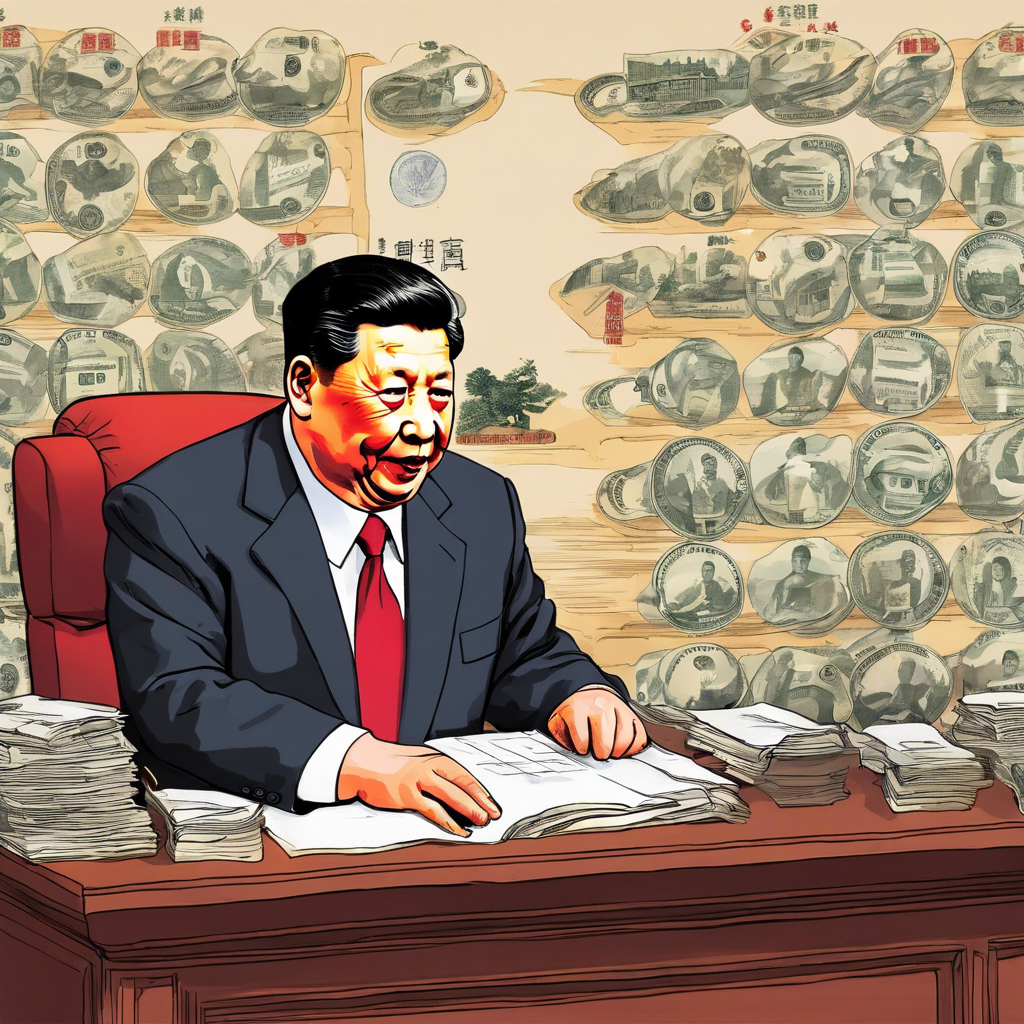Xi Jinping Strengthens Control Over China’s Financial System

Communist Party’s Ideological Statement Signals Increased Oversight and Government Influence
In a move to extend his power and control over China’s financial system, President Xi Jinping has issued a detailed ideological statement through the Communist Party’s official theoretical journal, Qiushi. The statement, which emphasizes adherence to Marxist principles and loyalty to Mr. Xi, has raised concerns among bankers and economists in China. This development could potentially undermine Beijing’s efforts to project an image of an open economy while simultaneously exerting a heavier hand on business.
The Party’s Expectations for Financial Organizations
The ideological statement published in Qiushi makes it clear that the Communist Party expects banks, pension funds, insurers, and other financial organizations in China to follow Marxist principles and demonstrate obedience to President Xi. This directive signifies a significant tightening of oversight and control over the finance sector, as well as a heightened requirement for these institutions to actively align with government policies.
Implications for China’s Economy
The Qiushi paper has prompted concerns among economists and analysts, who fear that increased government influence over the financial system could hinder China’s economic growth and openness to investment. The move raises questions about the balance between state control and market forces in the country’s economy.
Barry Naughton, an economist at the University of California at San Diego, has been studying China’s transition to a market economy for years. He interprets the document as a clear indication that the finance sector will face even stricter oversight and be compelled to serve government policies more actively. This shift could potentially limit the autonomy and flexibility of financial institutions, hindering their ability to respond to market dynamics.
Balancing Control and Openness
China has been striving to strike a delicate balance between maintaining control over its economy and attracting foreign investment. While President Xi’s push for greater control over the financial system may raise concerns among international investors, it is essential to consider the broader context of China’s economic strategy.
The Chinese government has been implementing various reforms aimed at reducing financial risks and promoting stability. The increased oversight and alignment with government policies can be seen as part of these efforts. However, striking the right balance between control and openness is crucial to maintaining investor confidence and sustaining economic growth.
Potential Impact on Foreign Investment
The Communist Party’s ideological statement could potentially impact foreign investment in China. International investors may perceive the increased government control over the financial system as a deterrent, as it may limit their ability to operate independently and navigate market dynamics.
However, it is important to note that China remains an attractive market for foreign investors due to its size, growth potential, and the presence of a burgeoning middle class. The country’s economic fundamentals and market opportunities continue to be key drivers for foreign investment.
Long-Term Implications
The strengthening of President Xi’s control over China’s financial system has significant long-term implications for the country’s economic and political landscape. It raises questions about the trajectory of China’s market-oriented reforms and the role of the Communist Party in shaping the economy.
As President Xi consolidates power and tightens control, it is crucial to monitor how this will impact economic decision-making, innovation, and the overall business environment in China. Balancing the need for stability and control with the imperative of fostering a dynamic and competitive economy will be a critical challenge for the Chinese leadership.
Conclusion:
President Xi Jinping’s move to extend his power over China’s financial system through the Communist Party’s ideological statement has sparked concerns about increased government control and its potential impact on the economy. As the finance sector faces stricter oversight and the need to align with government policies, questions arise about the delicate balance between control and openness. While this development may raise concerns among international investors, China’s economic fundamentals and market opportunities continue to attract foreign investment. The long-term implications of President Xi’s control over the financial system will shape China’s economic and political landscape, emphasizing the need to strike a balance between stability and fostering a dynamic economy.










